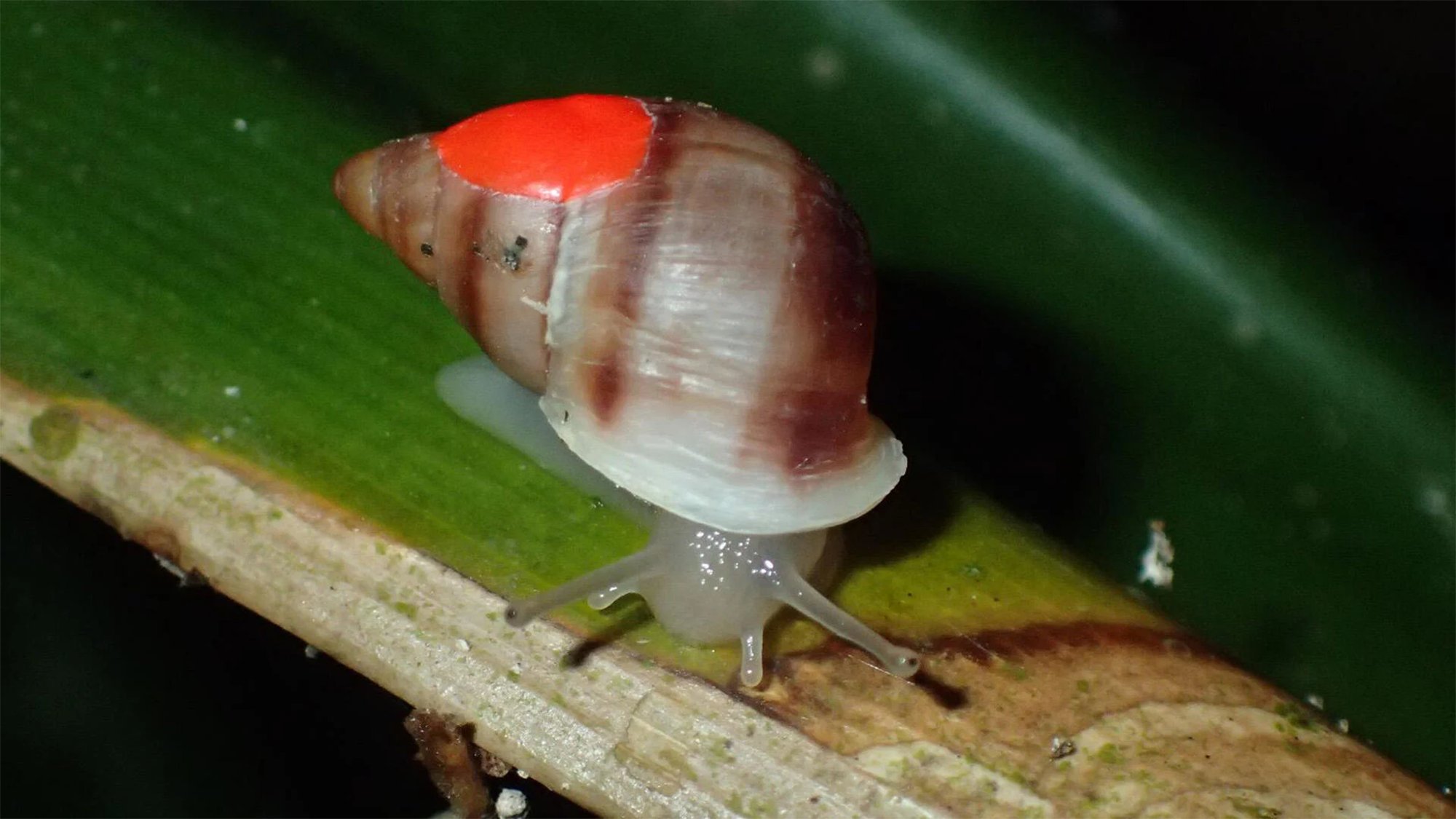

It wasn’t snakes on a plane to the Pacific islands of Tahiti and Moorea, but some very special snails. Over 5,000 of partula snails bred and raised at zoos in London, Scotland, and Missouri were flown over 9,000 miles to be reintroduced in the wild.
[Related from PopSci+: Beavers, snails, and elephants are top grads from nature’s college of engineering.]
These ‘extinct in the wild’ partula snails (also called Polynesian tree snails) eat decaying plant tissue and fungi. They also play an important role in maintaining forest health. When invasive African giant land snails took over some islands in French Polynesia, the rosy wolf snail was introduced to solve the problem. Unfortunately, the rosy snails hunted down the native partula snails instead.
Returning partula snails back to the wild, in coordination with the French Polynesian Government’s Direction de l’environnement, is a step towards restoring some ecological balance in these islands.
“Despite their small size, these snails are of great cultural, ecological and scientific importance— they’re the Darwin’s finches of the snail world, having been researched for more than a century due to their isolated habitat providing the perfect conditions to study evolution,” the London Zoological Society curator of invertebrates Paul Pearce-Kell said in a statement.
The nocturnal snails that measure less than an inch long were individually marked with a dot of red reflective paint before being released, so that the conservationists can track them better. The team reintroduced eight species and subspecies classified as Extinct-in-the-wild, Critically Endangered, or Vulnerable.
In the early 1990s, the last few surviving individuals of several Partula species were rescued and brought back to the London and Edinburgh Zoos for an international conservation breeding program that brought together 15 zoos.
“After decades of work caring for these species in conservation zoos—and working with the Direction de l’environnement to prepare the islands for their return—we began releasing Partula snails back into the wild nine years ago,” said Pearce-Kell.
[Release: Large, destructive snails have invaded Florida.]
Eleven snail species have since been saved, including the last known individual of the Partula taeniata sumulans. This lone snail was brought to Edinburgh zoo in 2010 and was bred back to several hundred individuals. Unfortunately, the Partula faba wasn’t as lucky. The nine individuals at Edinburgh could not successfully breed in captivity and the species became extinct in 2016.
The zoos worked with the French Polynesian government to prepare the islands for their return to the wild nine years ago.
“Since then, we’ve reintroduced over 21,000 Partula snails to the islands, including 11 Extinct-in-the-wild species and sub-species: this year’s was the largest reintroduction so far, thanks to the incredible work of our international team efforts with collaborators,” said Pearce-Kell.
